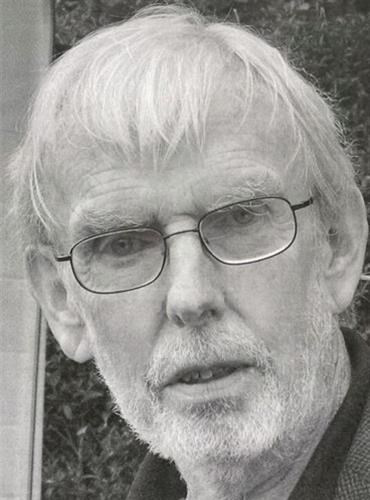
School of the Arts, Media, Performance & Design (AMPD) theatre Professor Emeritus Robert Fothergill died Nov. 18 in Toronto.
On April 3, 1941, Fothergill was born in Banstead, Surrey, England to Brenda (née Carr) and Charles Fothergill, the first of three children. As a lad, his favourite activity was plane spotting including cycling to Croydon airport to collect serial numbers of incoming planes. His Cambridge years at Downing College were exciting; he felt indebted to the teachings of F.R. Leavis in shaping his approach to English literature.

After a year teaching in Switzerland and a second in Baghdad (during the revolution), he came to Canada in 1963 to pursue graduate work at McMaster University and the University of Toronto. His PhD dissertation was published as Private Chronicles: a Study of English Diaries by Oxford University Press in 1974. He taught in the English department at York University's Atkinson College starting in 1966, later moving to York's Theatre department, a change which reignited his passion as a professor.
Fothergill's love for Shakespeare was unsurpassed – throughout his life, he quoted lines from The Bard, Beckett and many other literary greats on so many occasions, big and small, that it was a fixture of everyday life; he made casual chats at home pretty special. He was endlessly witty and loved to make people laugh. He loved conversations; he loved to teach; he loved his students; and he had great regard for his colleagues, many of whom became dear friends. One student writes, "He was a wonderful man. Kind, witty, staggeringly talented as a teacher, and one of the biggest influences in my decision to go to theatre school in the first place… He made me realize that life can take many twists and turns, and I wasn't so anxious anymore. I've never regretted the choice I made, ultimately, and I owe it to him." The outpouring of thoughts like these has been a great comfort to his family.
His writing included plays that were staged at Toronto theatres and beyond. He loved all of his plays, but Detaining Mr. Trotsky (1987), his first major production, was his favourite. He was proud and grateful to see his work brought to life by talented actors, directors and theatre crews. He was an avid supporter of Canadian film in the 1960s and beyond as it came of age, and was a founding member of the Canadian Filmmakers Distribution Centre along with Lorne Michaels, David Cronenberg and Ivan Reitman. He made films himself, proudest of the controversial Countdown Canada, imagining the takeover of Canada by the U.S., and Campaign, an account of NDP candidate Barbara Beardsley's run for office in Ontario's 1975 provincial election. He was a lifelong NDP supporter, always wanting more for those who had less than he had; he inspired his partner, Eleanor Dudar, to join the cause, and continued to canvass even with their young sons in tow.
Fothergill travelled to India three times to direct Canadian plays with students who had no theatre training; they were in awe of the chance to work with him, who in their eyes was an "esteemed professor." After retiring, he wrote and produced Let's Go!, a prequel to Waiting for Godot, led some Living and Learning in Retirement lecture series, and just this past year created a Hot Docs video series, The Magic of the Theatre. He was getting ready to work on lectures about Renaissance drama for graduate students in Basra, Iraq.
He never stopped supporting former students and colleagues in ways large and small. He was so giving and so generous-even more than we knew, having an impact on countless others' lives. He loved the glow of the spotlight, but he was a humble man.
His family was so dear to him. Sadly predeceased by both his younger sisters, Clare and Veronica, he leaves behind a wonderful family in England. His death, which he fought against so hard even with badly damaged lungs and heart, leaves a huge hole in the lives of Eleanor and their sons, Patrick and Simon. His grandchildren, Thomas and Sarah, really were the light of his life. He especially adored reading them stories in their early years, and more recently, giving history lessons, especially of revolutions and wars, with an atlas in hand. He will miss watching them continue to grow; such is the sad but inevitable fate of grandparents. His Canadian relatives and their families grieve his loss deeply.
Fothergill was kind, patient and generous and these quiet virtues often go unremarked, yet they are essential to making life better for everyone. He was so grateful for the medical support from his many doctors over his last years, and the people in Toronto General's cardiac ICU during his last days were exceptional. In spite of his extremely limited energy, he still enjoyed finding out where his nurses were from so he could talk about history and politics with them. They allowed his family to spend so many hours over 18 days loving him, advocating for him, and talking with him as much as his energy would allow. What a precious gift to have that extra time.
There will be a memorial event to honour his life, details of which will be forthcoming. Donations in his memory can be made to the Daily Bread Food Bank, Doctors Without Borders, or the Campaign to Cure Arthritis through the UHN Schroeder Institute.
